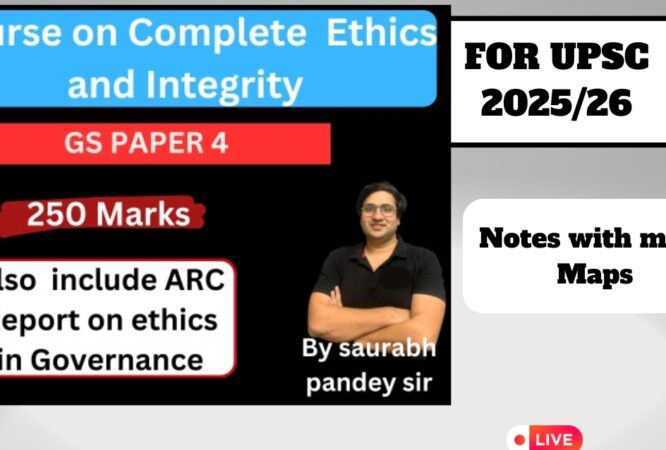Welfare vs Freebies
- A neoliberal economy encourages private capital and the market, while forcing the state to withdraw from welfare.
- The state is limited in taking concrete and constructive efforts to fulfil the aspirations of the people.
- Even as the poor perceive the state as an arbitrator of their well-being and a facilitator for their mobility in all spheres of life, today’s political parties resort to unsolicited freebies to attract them.
- The line between welfarism and populism has blurred.
- Welfare initiatives include a targeted Public Distribution System, providing social security for labourers, quality education, fair employment, affordable healthcare, decent housing, and protection from exploitation and violence.
- Freebies, on the other hand, are provided to attract voters to cast their vote in a particular election.
- They create limited private benefit for the receiver and do not contribute towards strengthening public goods/facilities.
- Unsolicited freebies cultivate a patron client syndrome and encourage personality cults in a democratic polity. Besides, they affect the critical faculties of citizens, particularly the poor and the marginalised.
- The patron/client system can be defined as a mutual arrangement between a person that has authority, social status, wealth, or some other personal resource (patron) and another who benefits from their support or influence (client).
- Providing freebies is to treat people like subjects, whereas citizens are entitled to constitutional guarantees.
- Welfare initiatives are an embodiment of civil rights, whereas unsolicited freebies show benevolence at best and apathy at worst towards the poor by the ruling parties
THE HINDU
National security vs rights
- The Supreme Court’s recent record on civil liberties has not been inspiring, especially where the cryptic phrase ‘national security’ is uttered.
- The rationale has been that the government is best placed to assess the impact on national security as it is the one overseeing all intelligence agencies and enforcement efforts.
- The Court’s order on October 27 forming a committee to probe the use of military grade spyware in India on Indian citizens was refreshing.
- The Constitution mandates that any restriction on the right to privacy must be through a valid law, be necessary to meet a legitimate purpose and be proportionate, i.e., there is a proper balance to be achieved between that purpose and the harm caused by limiting the right.
- It is likely that the snooping, if any, through Pegasus may not be sanctioned by any law to begin with, else the government would have filed an affidavit to that effect as nudged by the apex court.
- National security cannot be the bugbear that the judiciary shies away from, by virtue of its mere mentioning.
- Rightly, the Court observed that in a democracy governed by the rule of law, indiscriminate spying on individuals cannot be allowed except with sufficient statutory safeguards grounded in legality, necessity and proportionality.
THE HINDU
UNCLOS
- India is committed to respecting the rights of all nations as laid down in the UN Convention on the Law of Seas (UNCLOS), Defence Minister Rajnath Singh said on Wednesday, while reiterating that India is determined to protect its legitimate maritime rights and interests.
- Rise of serious threats such as terrorism, piracy, drug trafficking and climate change had thrown new challenges for the Indo-Pacific region.
- “The nature of these challenges in the region has considerable transnational implications, which require a cooperative response.
- There is, therefore, a need to find convergence of interests and commonality of purpose on maritime issues,”
- There was need to be aware of the evolving nature of competition and contestation in the Indo-Pacific region
About UNCLOS
- The United Nations Convention on the Law of the Sea (UNCLOS), also called the Law of the Sea Convention or the Law of the Sea Treaty, is an international agreement that establishes a legal framework for all marine and maritime activities. As of June 2016, 167 countries and the European Union are parties.
- The Convention resulted from the third United Nations Conference on the Law of the Sea (UNCLOS III), which took place between 1973 and 1982. UNCLOS replaced the four treaties of the 1958 Convention on the High Seas.
- UNCLOS came into force in 1994, a year after Guyana became the 60th nation to ratify the treaty.
- It is uncertain as to what extent the Convention codifies customary international law.
- While the Secretary-General of the United Nations receives instruments of ratification and accession and the UN provides support for meetings of states party to the Convention, the United Nations Secretariat has no direct operational role in the implementation of the Convention.
- A UN specialized agency, the International Maritime Organization, does play a role, however, as well as other bodies such as the International Whaling Commission and the International Seabed Authority (ISA), which was established by the Convention itself.
THE HINDU
“Har Ghar Dastak” (Knock Every Door) campaign
- The “Har Ghar Dastak” (Knock Every Door) campaign is to start soon in districts with low vaccination rates to enthuse and motivate people towards getting their jab.
THE HINDU
Land boundary law of china
- China must not use its new “Land Boundary Law” to justify any actions that alter the situation at the Line of Actual Control (LAC), said India, in a strongly worded statement that expressed “concern” over the law.
- The Government called the law a “unilateral move”, and said it could have no bearing on existing arrangements between both sides, as India and China have not resolved their boundary issues thus far.
- It also reaffirmed India’s rejection of the China-Pakistan 1963 agreement, in which Pakistan handed over the Shaksgam Valley of Aksai Chin to China.
- India claims all of Jammu and Kashmir, which includes Aksai Chin, and has maintained that the agreement is “illegal and invalid”.
- In addition, New Delhi’s latest statement indicates some apprehension that Beijing could use its new law, which authorizes the state to combat any attempts on its land boundaries and to strengthen border defenses and infrastructure, as a “pretext” to formalize the People’s Liberation Army (PLA) incursions into the LAC and building infrastructure along Indian territory since April 2020
- India and Russia energy cooperation
- Indian and Russian Energy Ministers announced that the countries’ companies have been pushing for greater cooperation in the oil and gas sector beyond the U.S. $32 billion already invested in joint projects.
- India’s Minister for Petroleum and Natural Gas Hardeep Singh Puri referred to Russia as the largest investor in India’s energy sector.
- Going green too the novel coronavirus pandemic is still far from over but an economic recovery has been underway.
- India, Asia’s third-largest economy, has expanded by more than 20% in the June quarter on a year to-year basis and is expected to grow by around 9% by the end of 2021
- India has been increasingly leaning toward green transition since the recovery started, and its appetite has been growing.
- One of the examples of cooperation between the two countries in energy transformation is the joint venture between India’s Reliance Industries Ltd. and Russia’s Sibur, the country’s largest petrochemicals producer.
- Set up in Jamnagar, Gujarat, the venture now leads the first butyl and halogenated butyl rubber production facility in South Asia.
- The facility became operational in 2019 and achieved a total throughput within the first year, establishing itself as a significant supplier of butyl rubber in the Indian market previously wholly dependent on imports
- India is one of the fastest-growing markets for butyl rubber and halogenated butyl rubber due to its rapidly expanding car manufacturing industry pushing for electric vehicles.
- Further to this, India is emerging as a critical refining hub in Asia to boost its petrochemical capacity.
- To meet its growing energy demand and succeed in green transformation, India needs approximately U.S. $500 billion of investments in wind and solar infrastructure, grid expansion, and storage to reach the 450 GW capacity target by 2030.
- Therefore, more efforts are needed to expand cooperation with such partners as Russia.
THE HINDU






